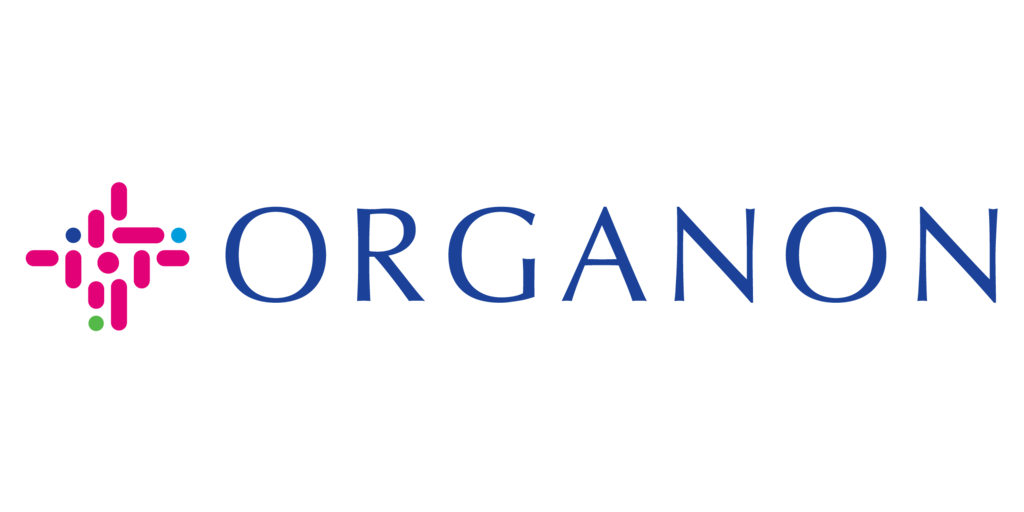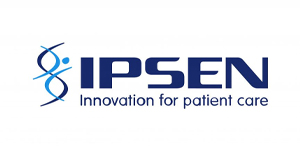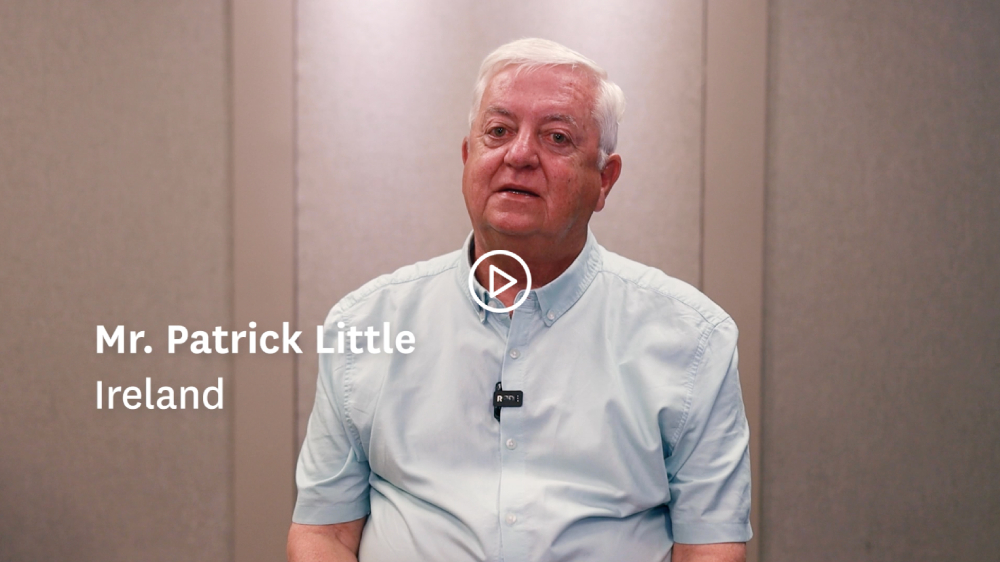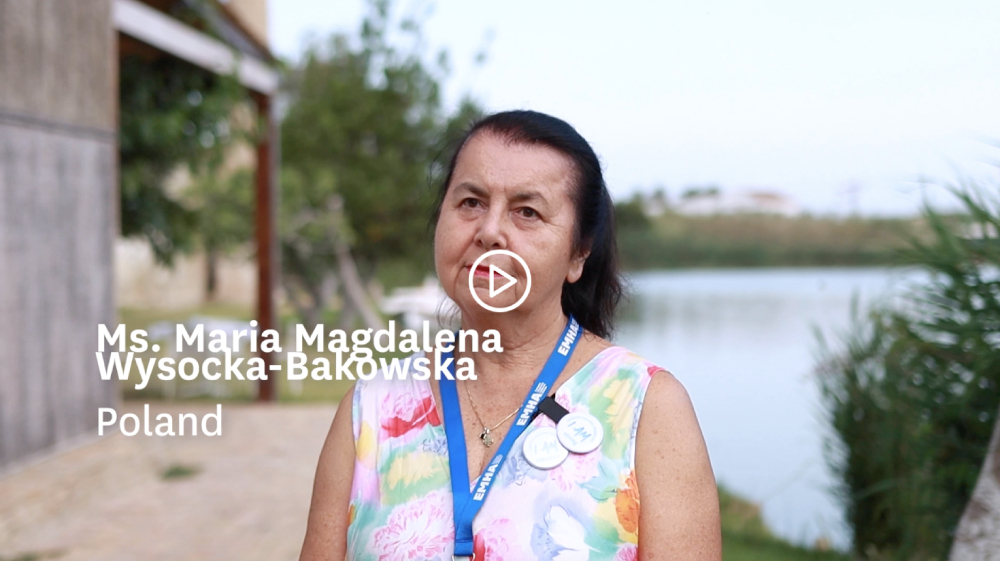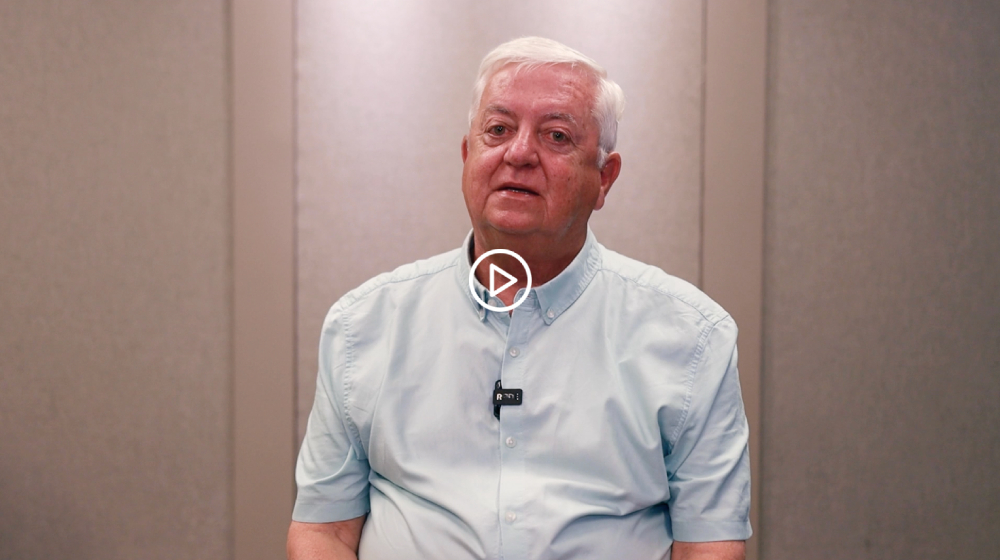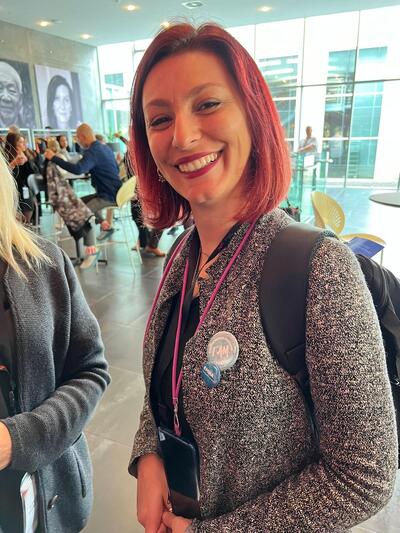
I Am a person with migraine, and I’m proud of myself. We are proud of ourselves. The stigma is only in the minds of others until we can free ourselves from it.
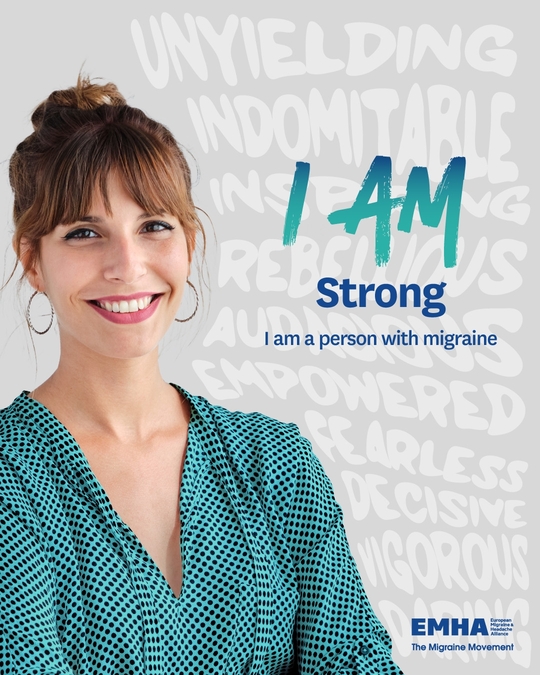

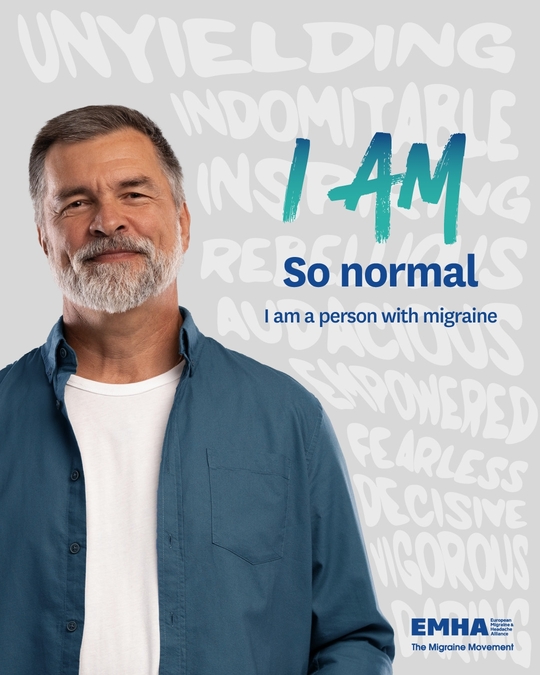
Migraine & Stigma Survey 2023
In 2023, the EMHA conducted a comprehensive pan-European
digital survey answered by 4.210 people across 17 countries. In order to examinate the origins of stigma surrounding migraine, its
impact on patients, and their need for better understanding and
support.
The survey covers various topics such as patients’ ease in sharing
their stories, understanding of migraine terminology
(chronic/episodic/refractory), areas of stigma (civil society, patients,
family, work) and ways to address it.
Stigmatization in migraine occurs when people suffering from
migraine perceive negative, dismissive, or intolerant attitudes
from others due to their condition. This stigma often arises from a
lack of understanding about migraine, adding an extra layer of
hardship to the already significant pain and suffering.
Summary of the “Migraine & Stigma” survey results
Survey findings indicate that migraine is more stigmatizing than
conditions like dementia, Parkinson’s disease, and stroke, partly because
it is sometimes perceived as a mere headache. Those with severe and
frequent migraines, especially in the workplace, encounter stigma
that triggers emotions of anger, loneliness, and sadness.
Moreover, respondents admitted feeling stigmatized by their doctors, leading some to avoid or delay seeking treatment out of fear of judgment.
The physical limitations imposed by migraine contribute to feelings of embarrassment and exclusion, with some people sensing unwarranted blame.
Moreover, respondents admitted feeling stigmatized by their doctors, leading some to avoid or delay seeking treatment out of fear of judgment.
The physical limitations imposed by migraine contribute to feelings of embarrassment and exclusion, with some people sensing unwarranted blame.
The study revealed that the language commonly used to describe
migraine, such as ‘disabling,’ ‘severe,’ ‘chronic,’ and ‘refractory,’ further
fuels stigmatization.
Through better education, increased advocacy and making changes to the lexicon used to describe migraine, we can create a more supportive environment for migraine sufferers.
The European Migraine & Headache Alliance calls urgently for a new ‘official medical language’ (lexicon) to diagnose and refer to the condition, and for greater understanding and education about migraine.
Through better education, increased advocacy and making changes to the lexicon used to describe migraine, we can create a more supportive environment for migraine sufferers.
The European Migraine & Headache Alliance calls urgently for a new ‘official medical language’ (lexicon) to diagnose and refer to the condition, and for greater understanding and education about migraine.

- READ THE FULL CONCLUSIONS AND HIGHLIGHTS OF “MIGRAINE & STIGMA” STUDY
- READ THE FULL “MIGRAINE & STIGMA” SURVEY RESULTS
- READ THE FINAL ANALYSIS - ARGENTINA
- READ THE FINAL ANALYSIS - AUSTRIA
- READ THE FINAL ANALYSIS - BELGIUM
- READ THE FINAL ANALYSIS - BULGARIA
- READ THE FINAL ANALYSIS - CANADA
- READ THE FINAL ANALYSIS - DENMARK
- READ THE FINAL ANALYSIS - ESTONIA
- READ THE FINAL ANALYSIS - FINLAND
- READ THE FINAL ANALYSIS - FRANCE
- READ THE FINAL ANALYSIS - GERMANY
- READ THE FINAL ANALYSIS - GREECE
- READ THE FINAL ANALYSIS - ITALY
- READ THE FINAL ANALYSIS - NETHERLANDS
- READ THE FINAL ANALYSIS - NORWAY
- READ THE FINAL ANALYSIS - PORTUGAL
- READ THE FINAL ANALYSIS - ROMANIA
- READ THE FINAL ANALYSIS - SPAIN
- READ THE FINAL ANALYSIS - SWITZERLAND
- READ THE FINAL ANALYSIS - TURKEY
- READ THE FINAL ANALYSIS - UNITED KINGDOM
- READ THE FINAL ANALYSIS - UNITED STATES OF AMERICA
Some illustrated highlights
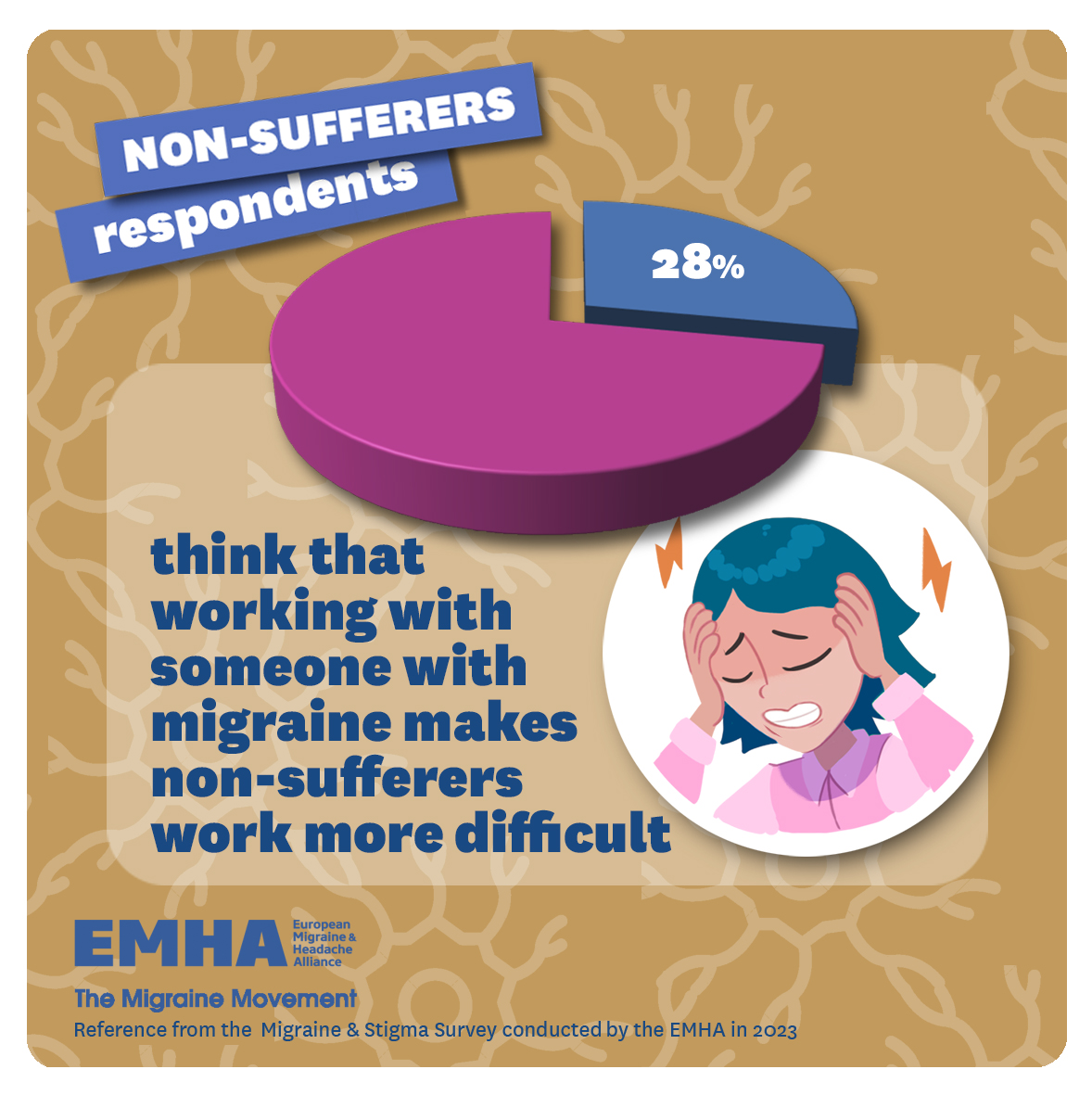
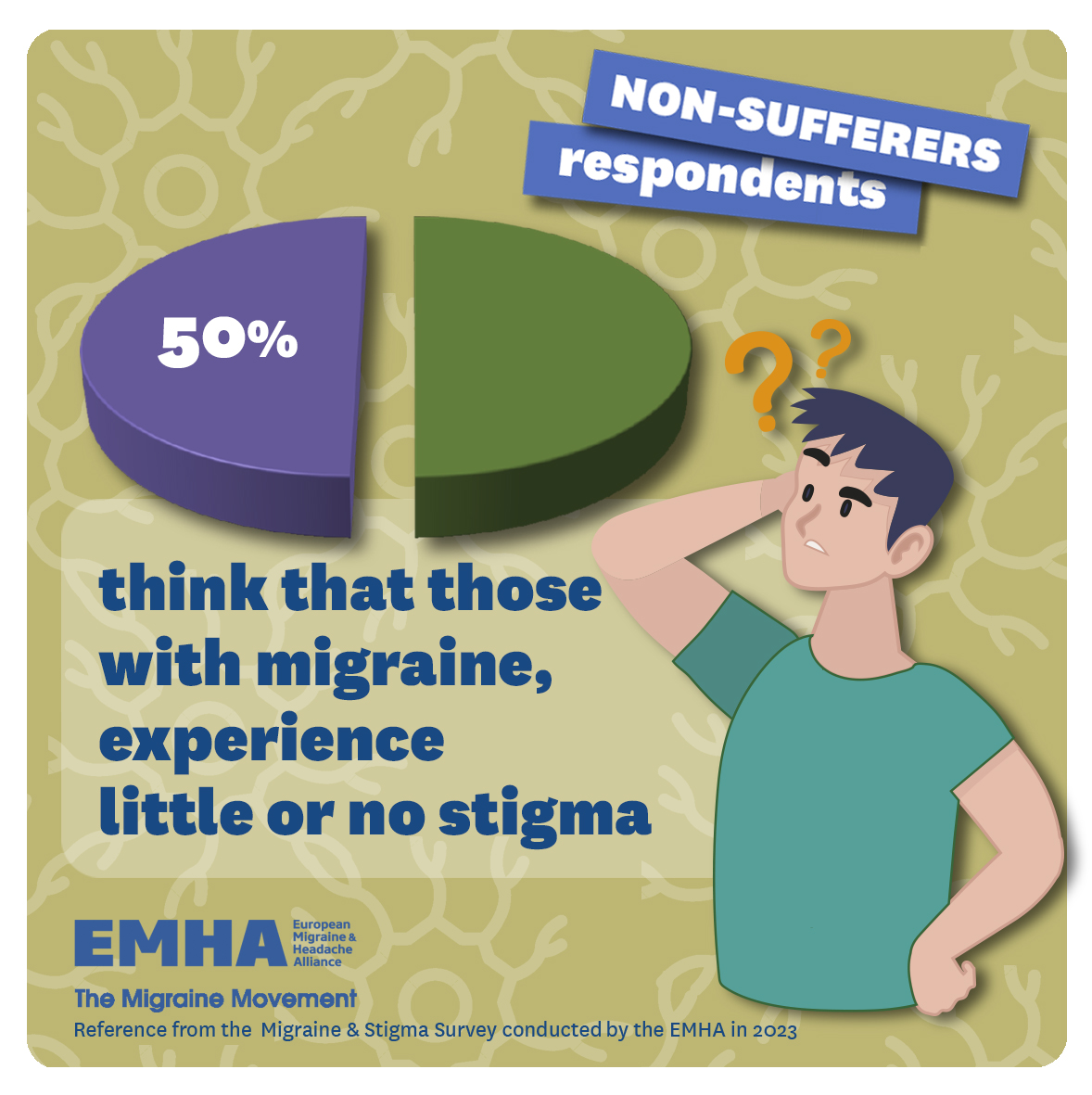
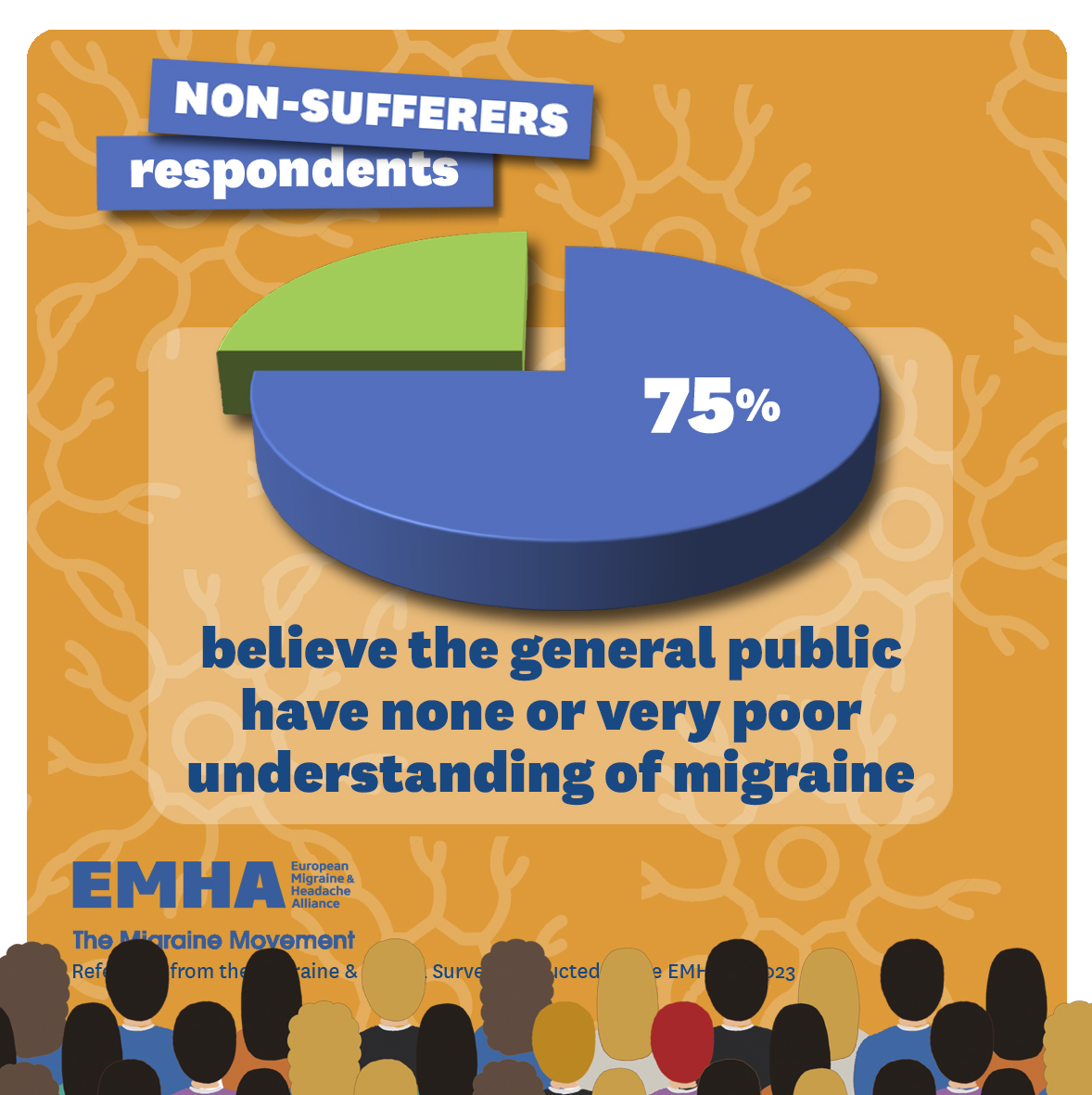
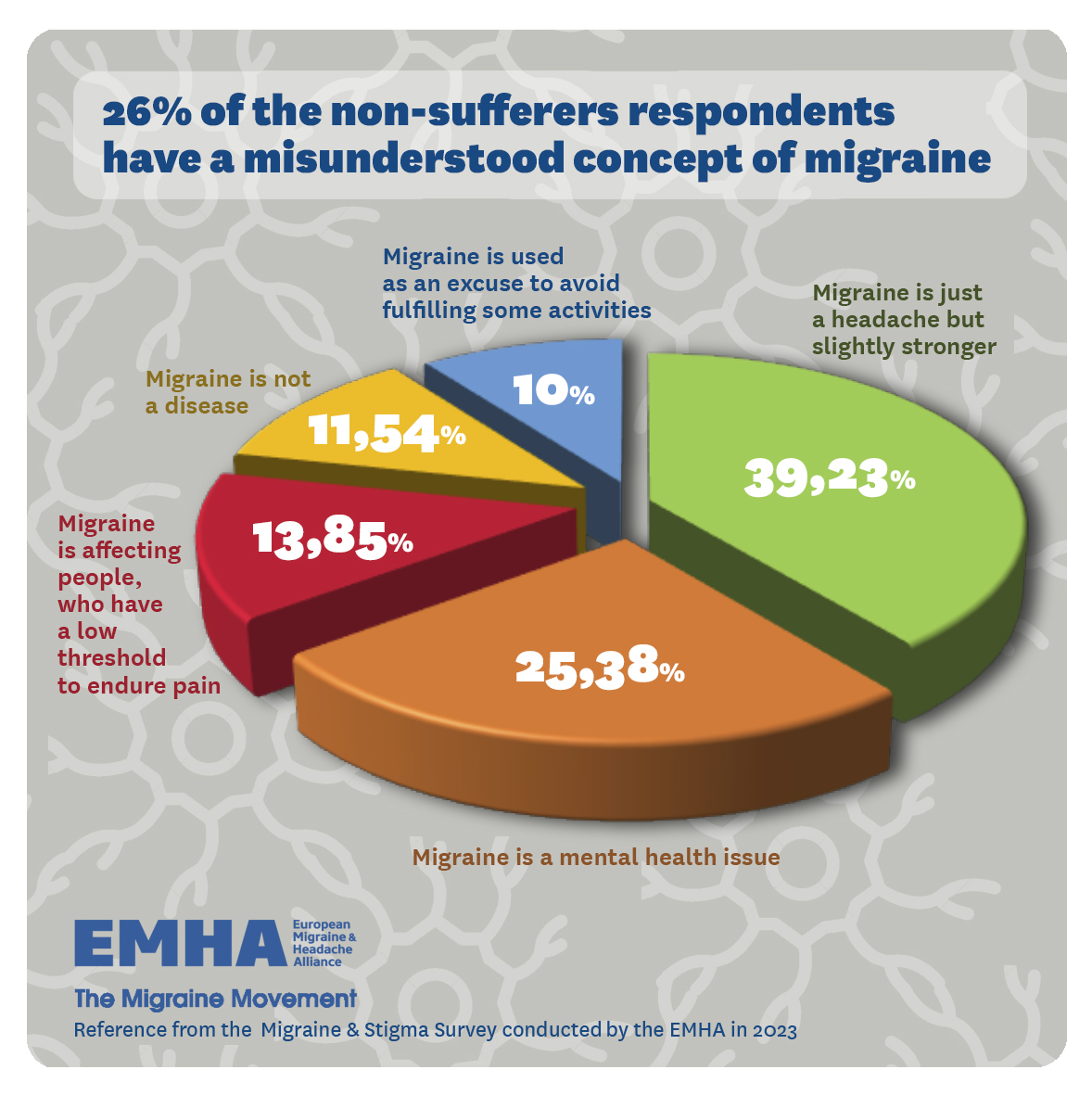
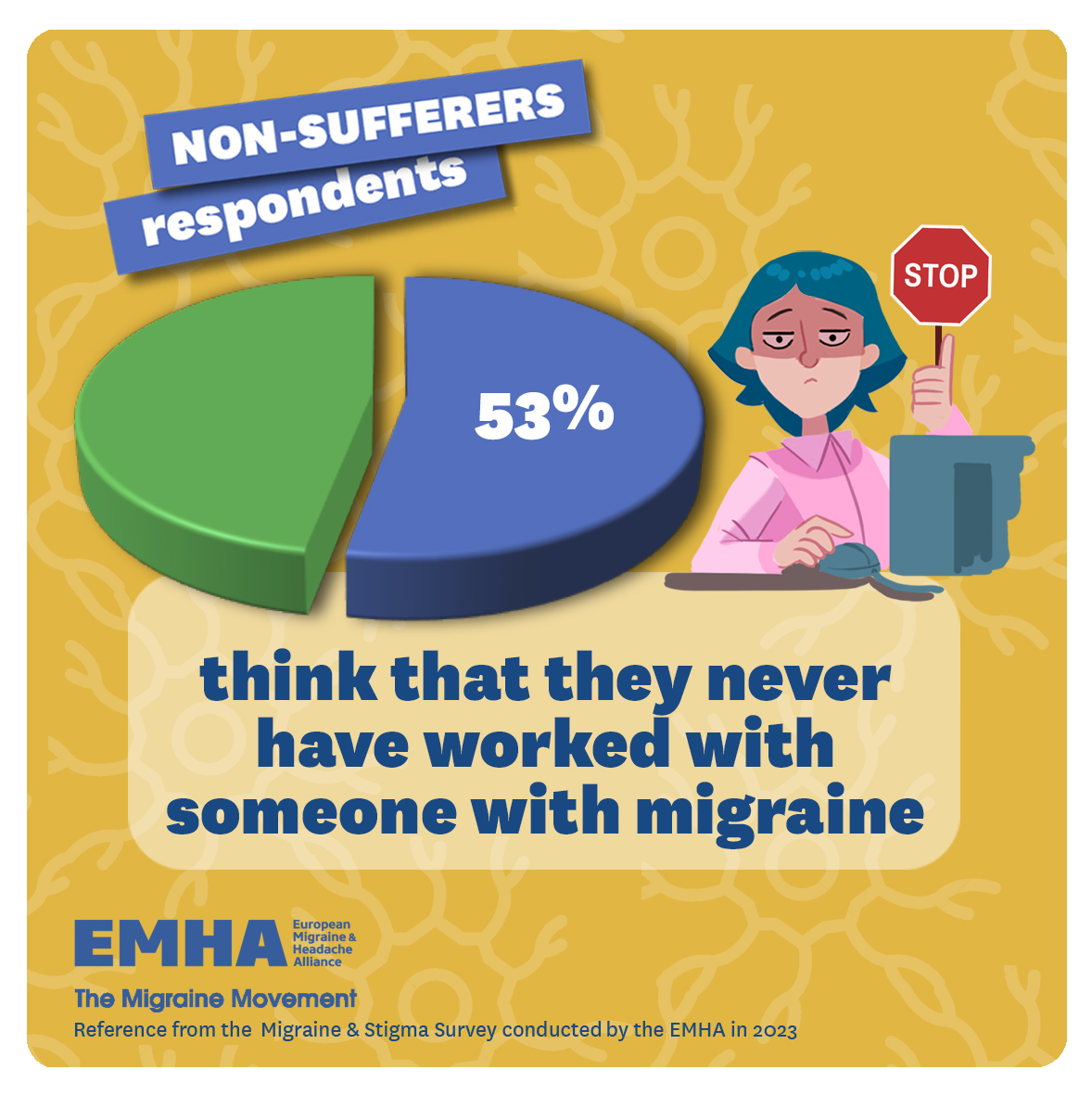
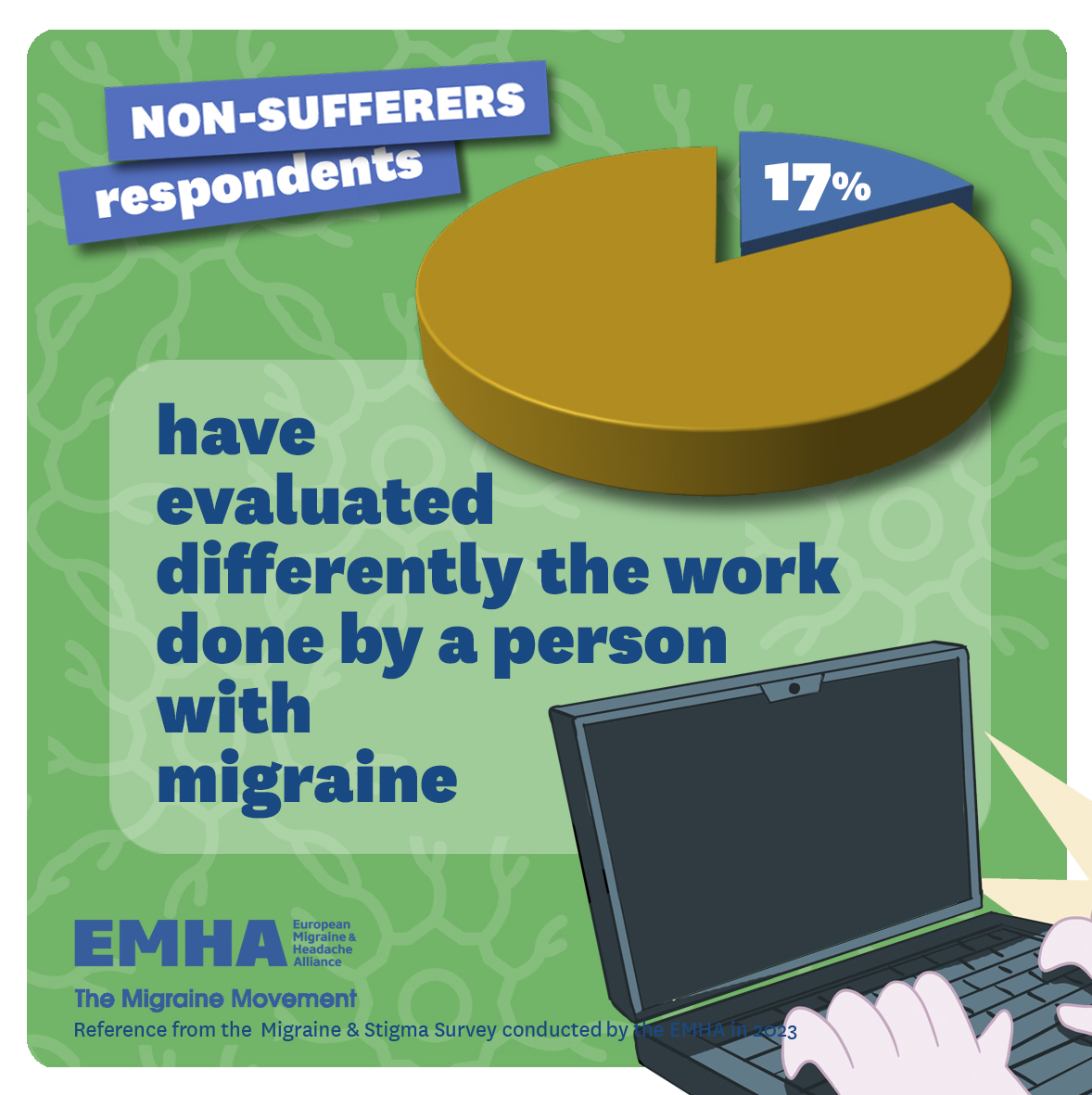
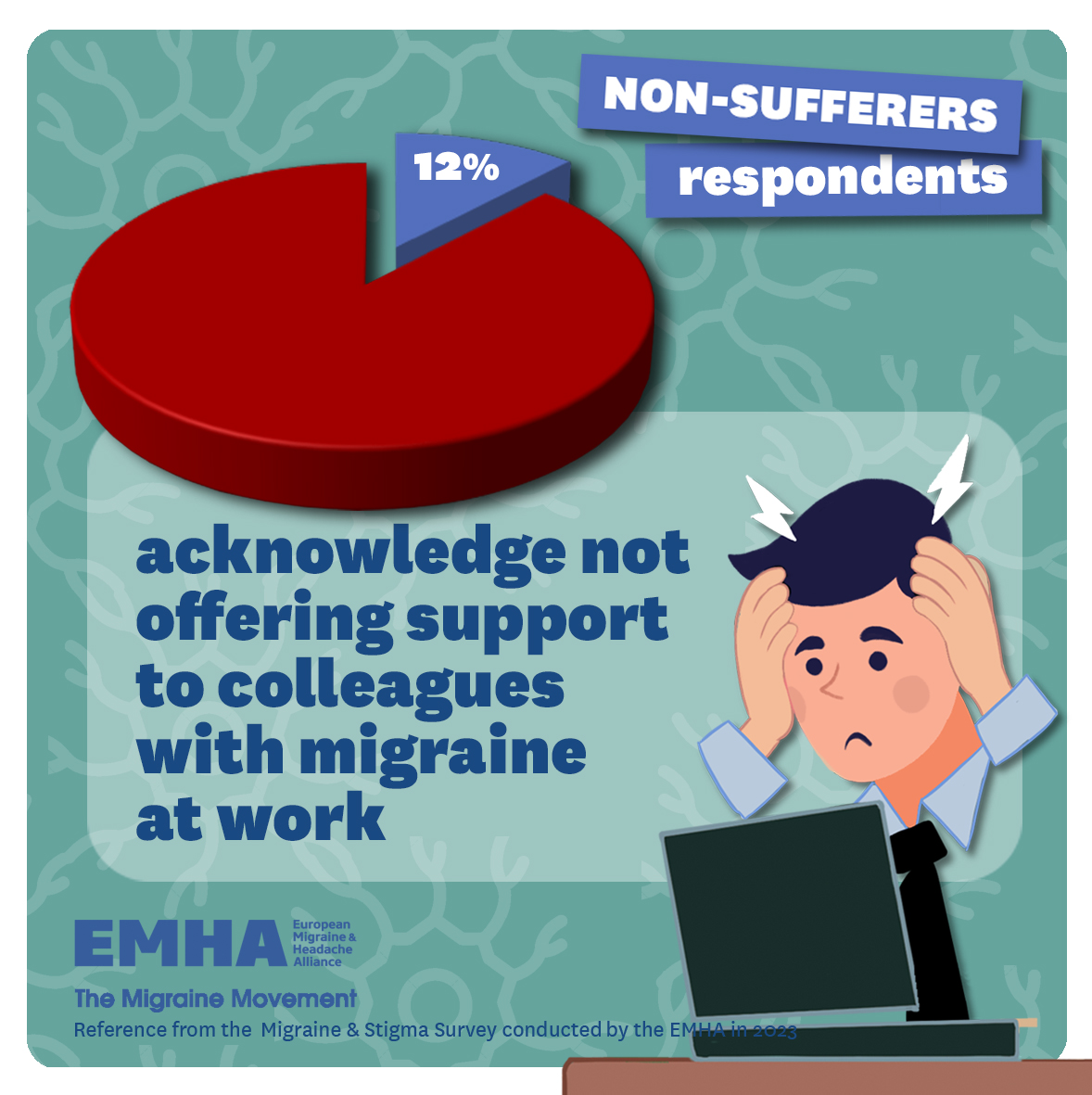
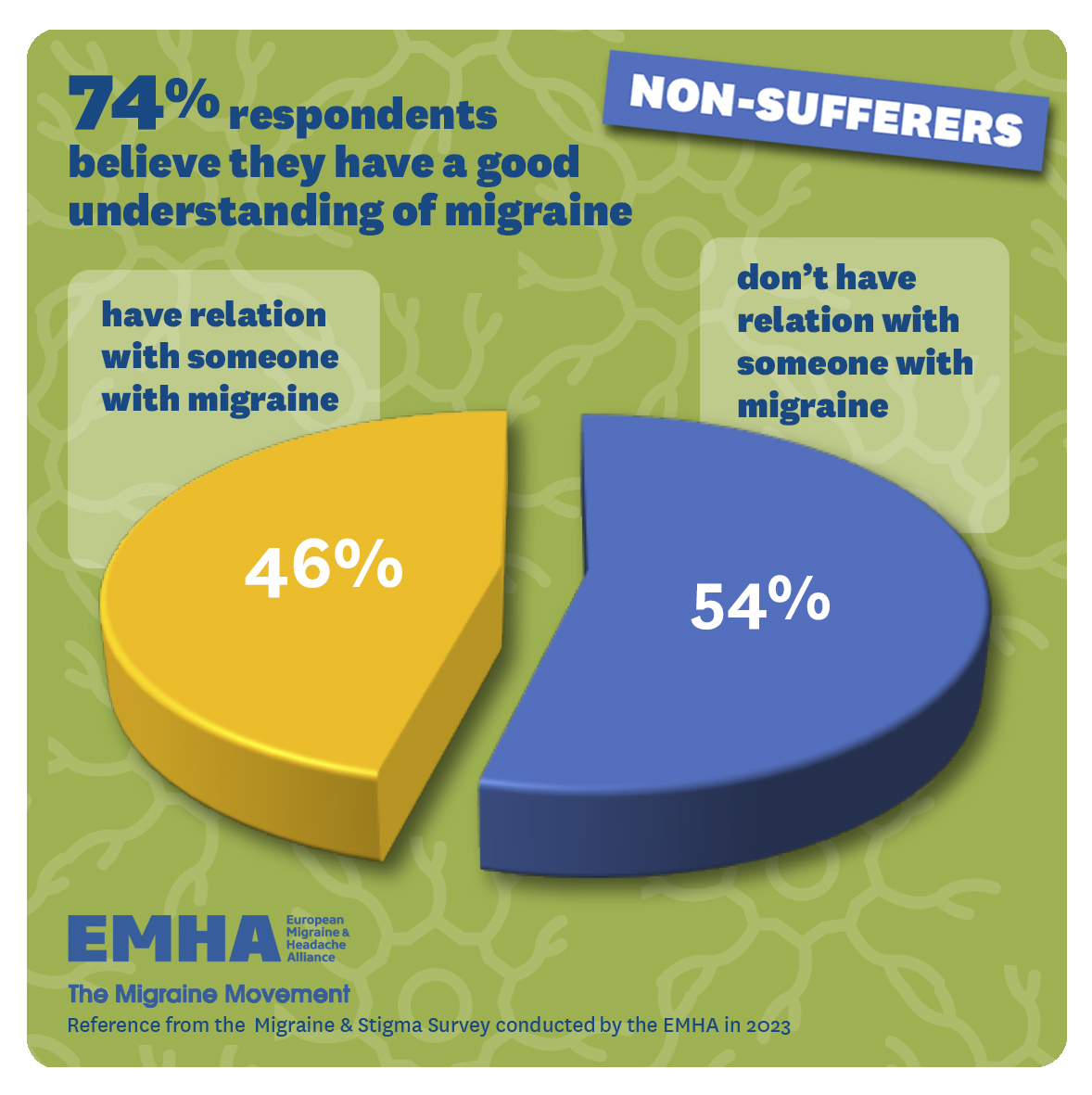
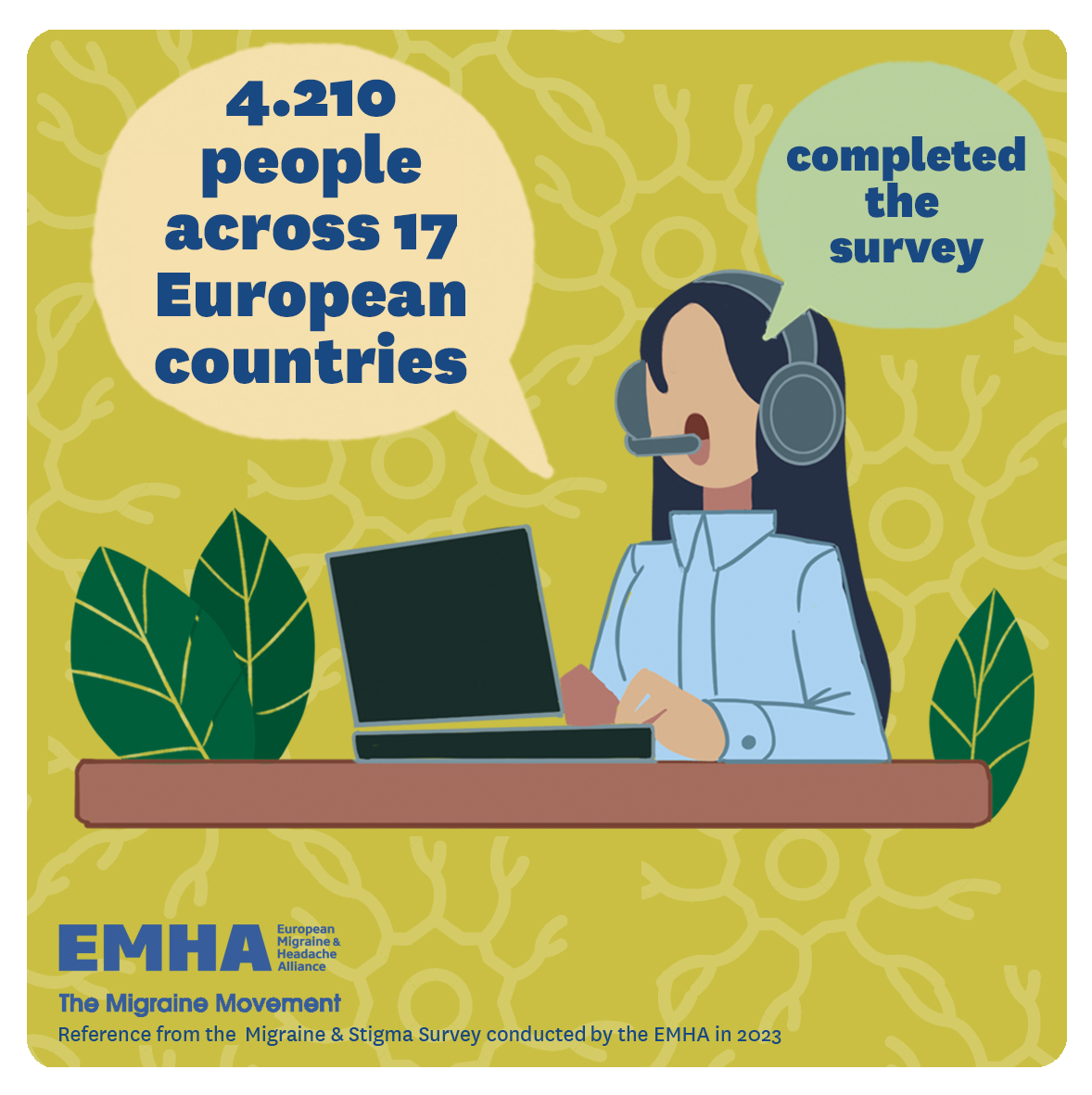
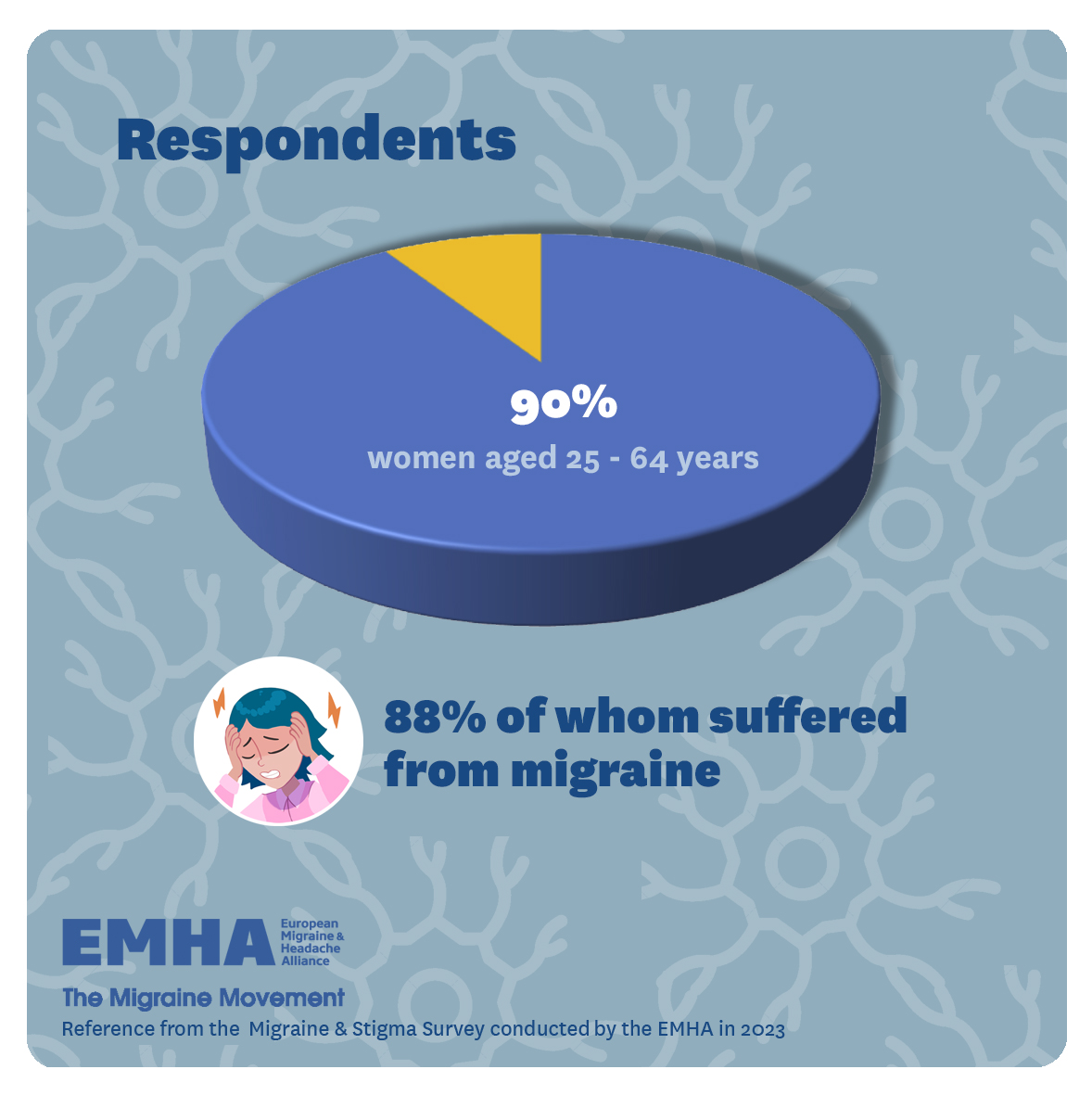
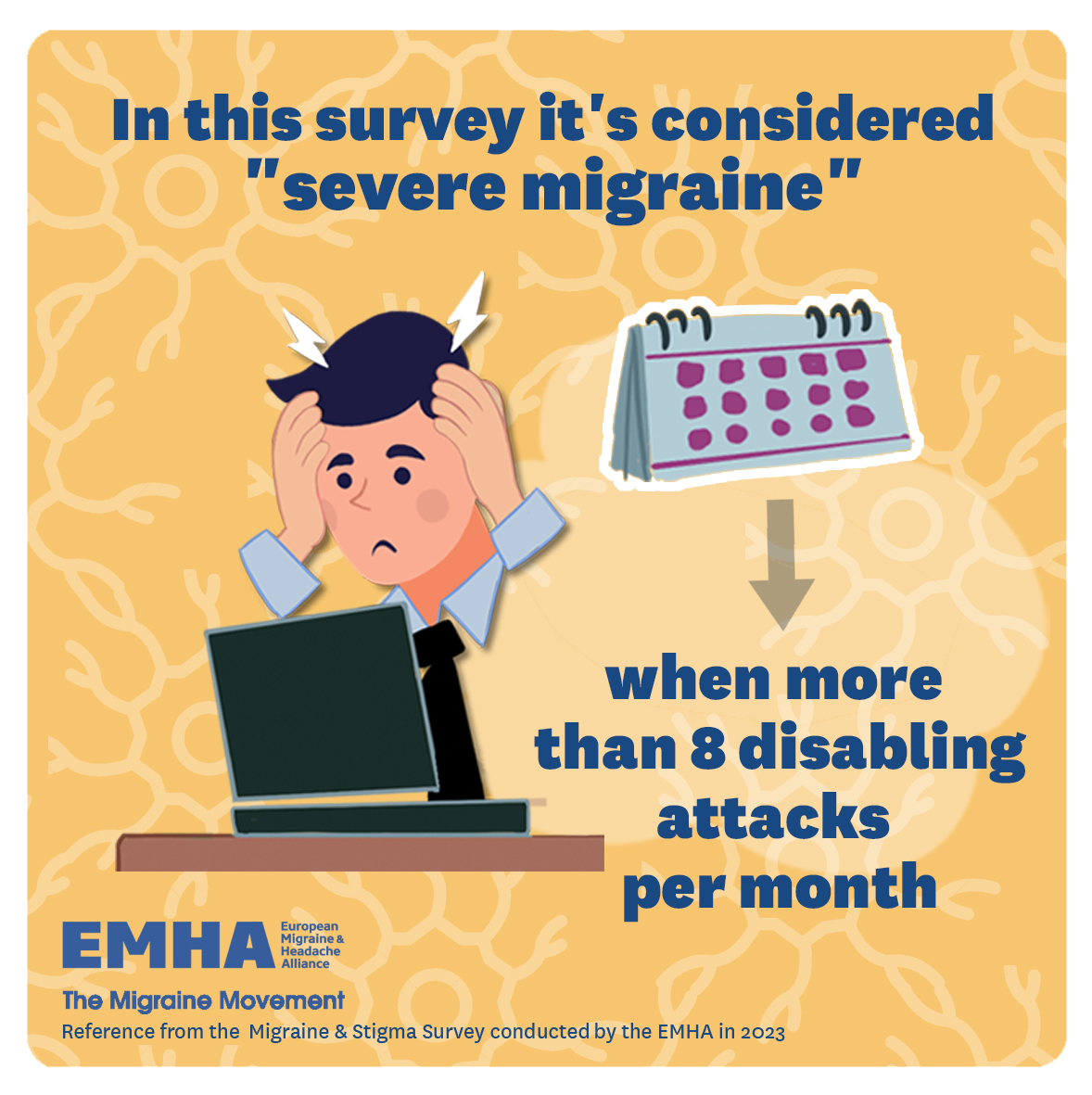
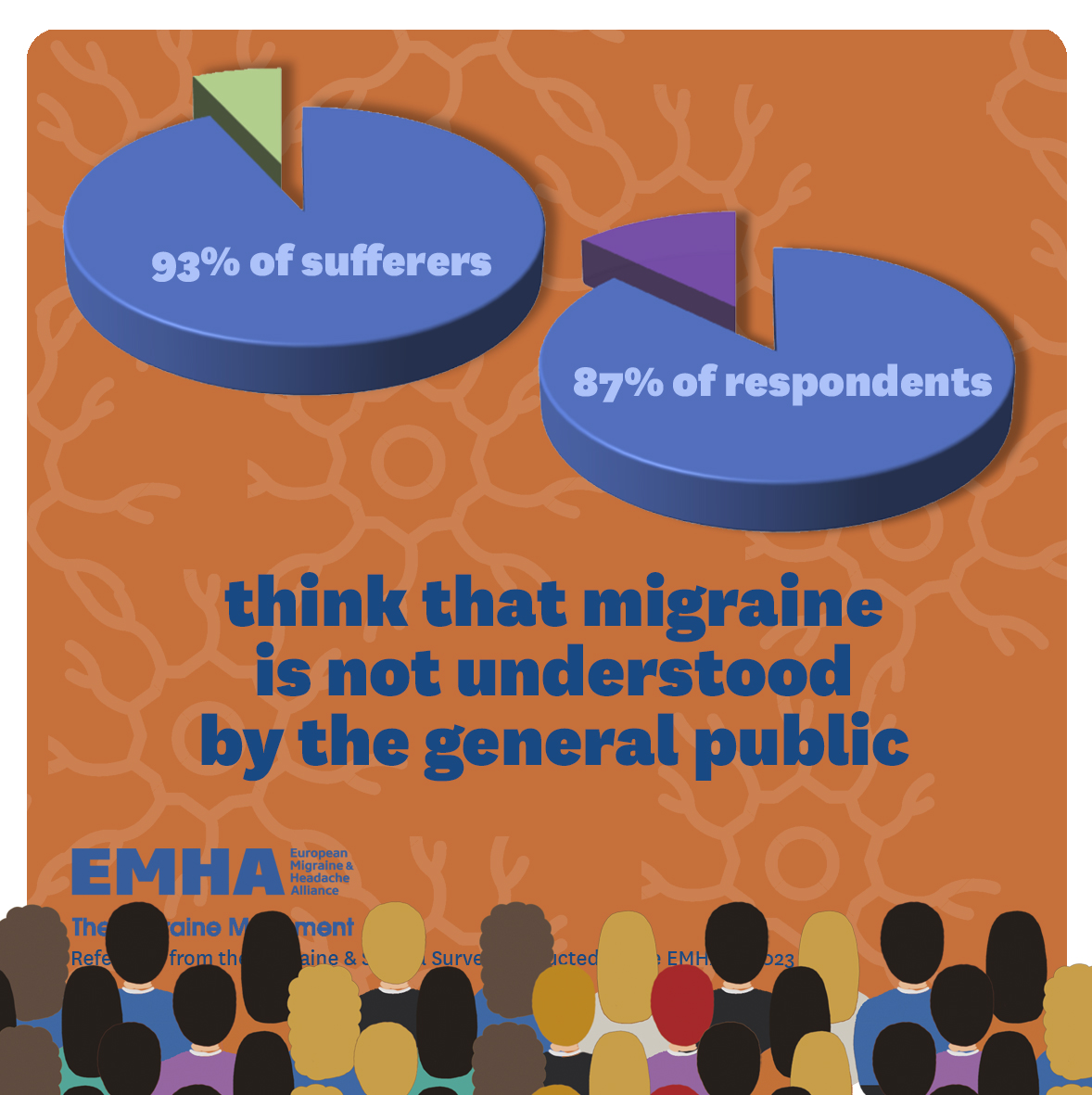
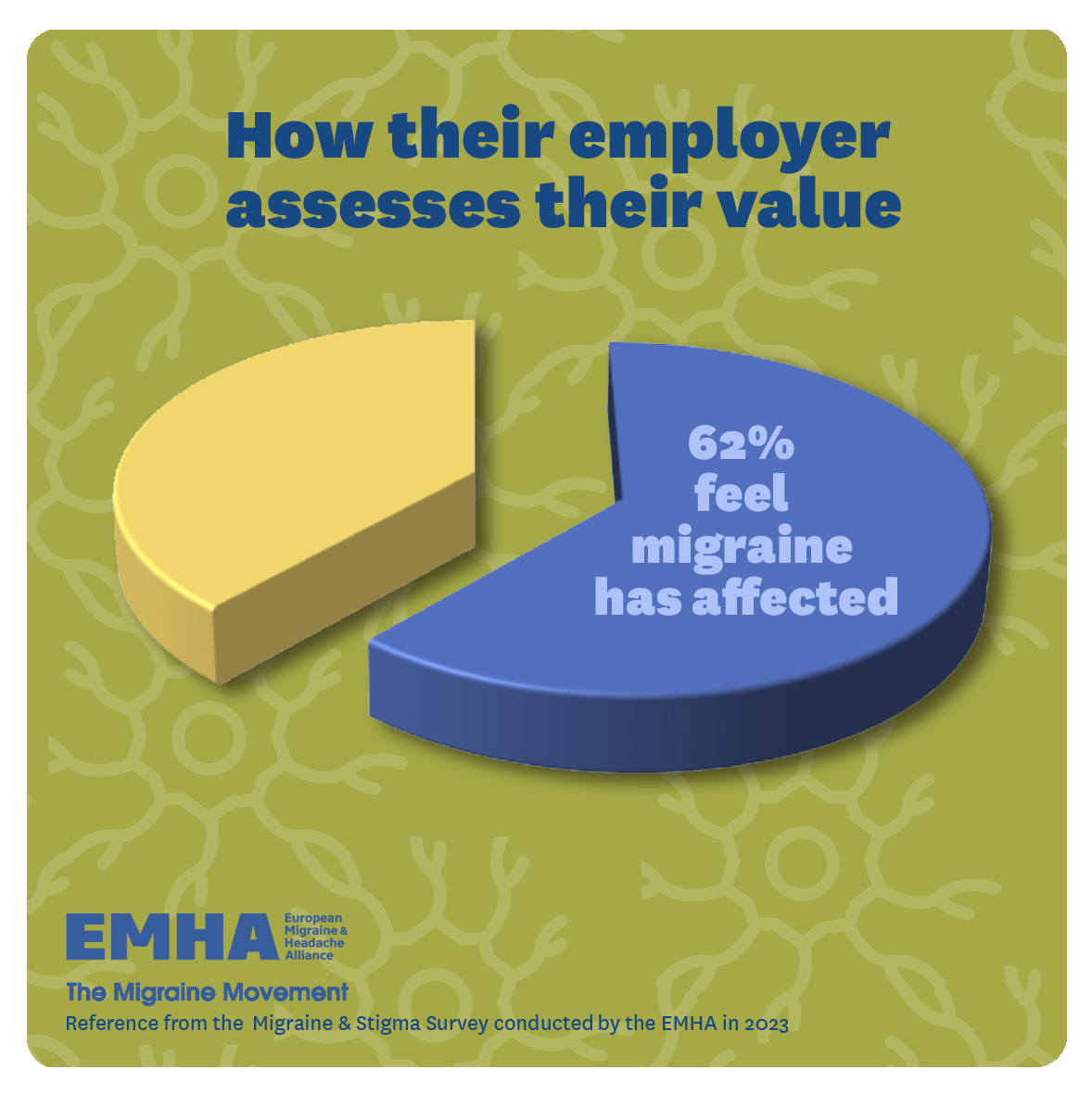
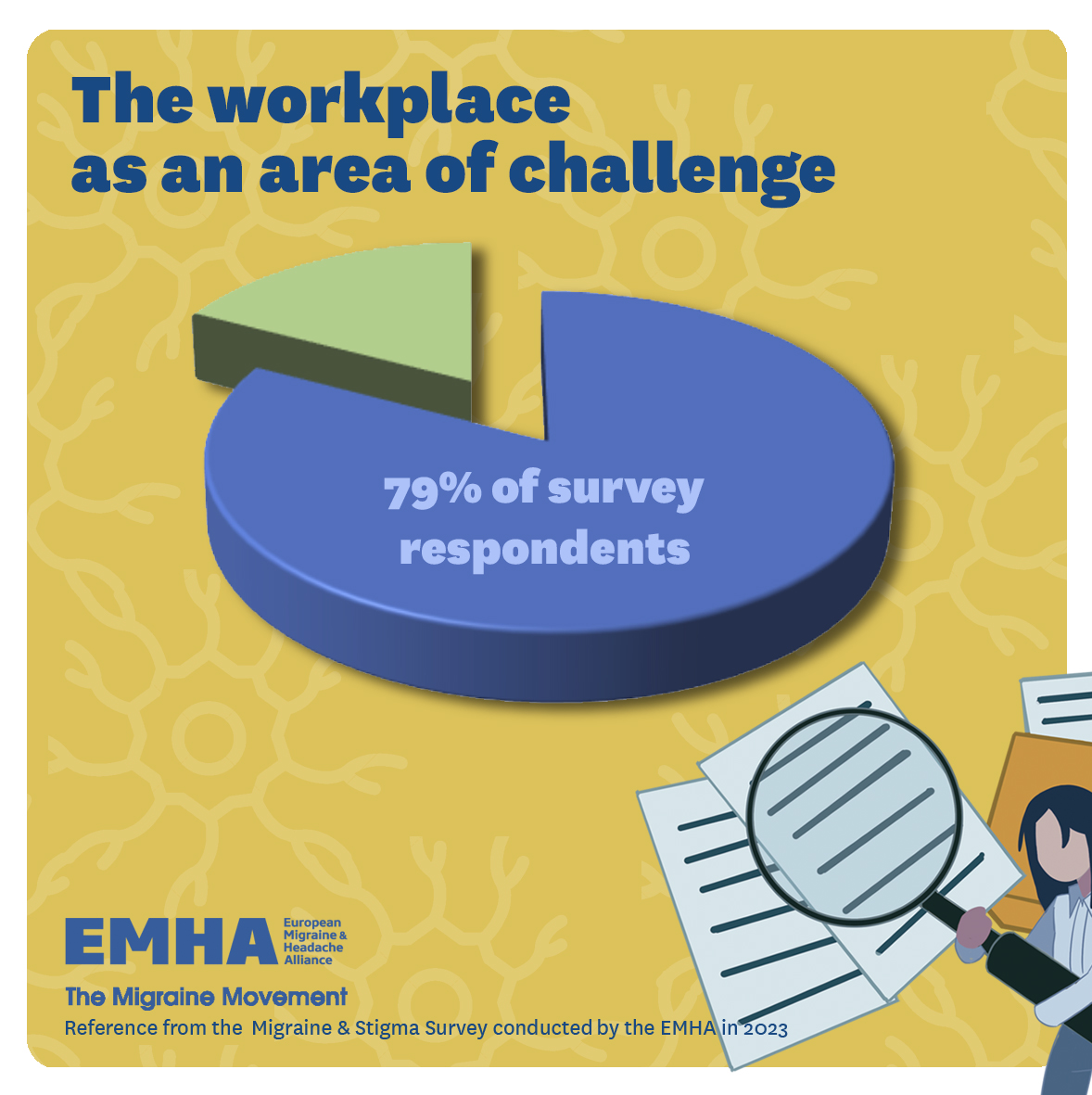
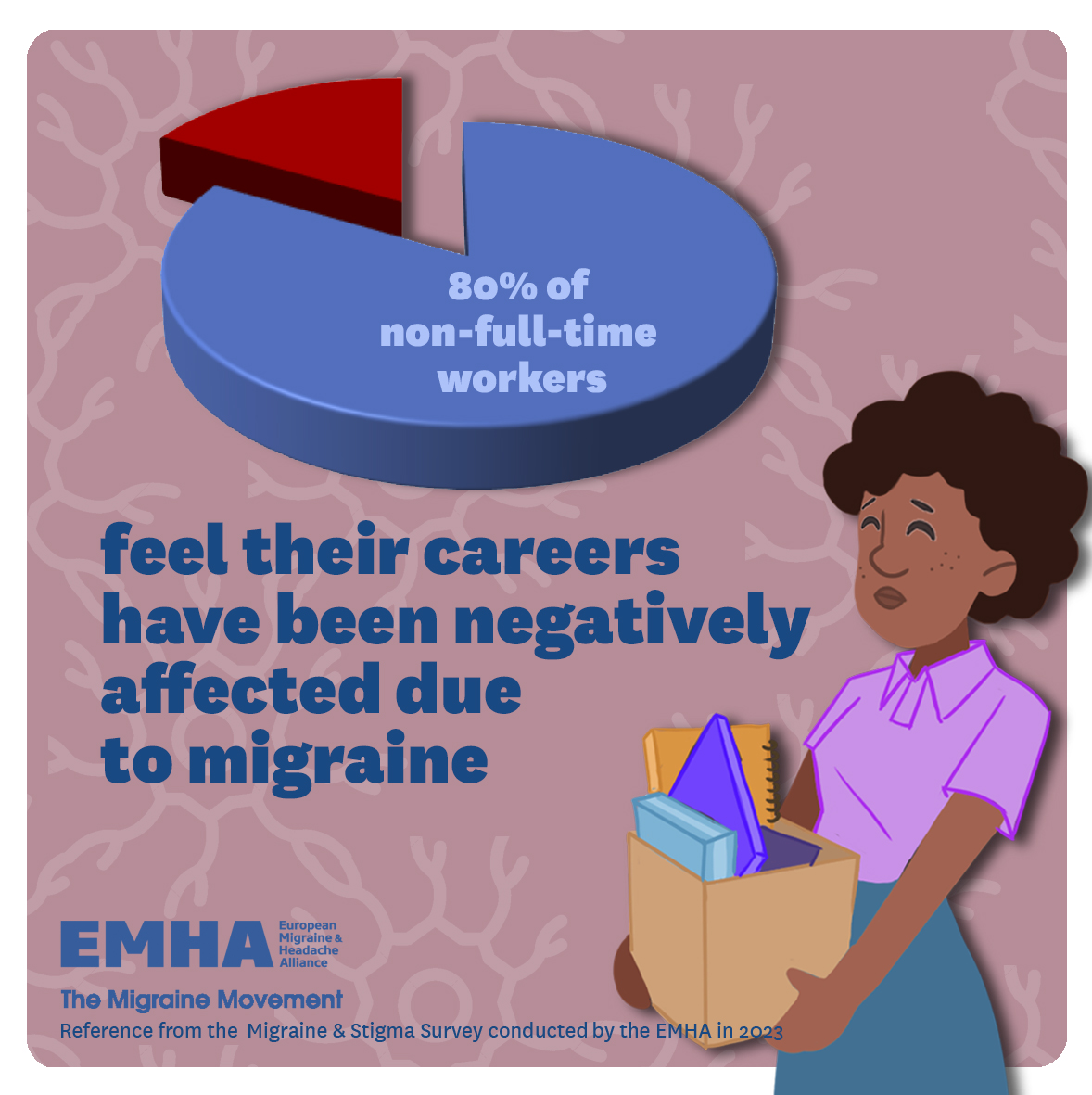
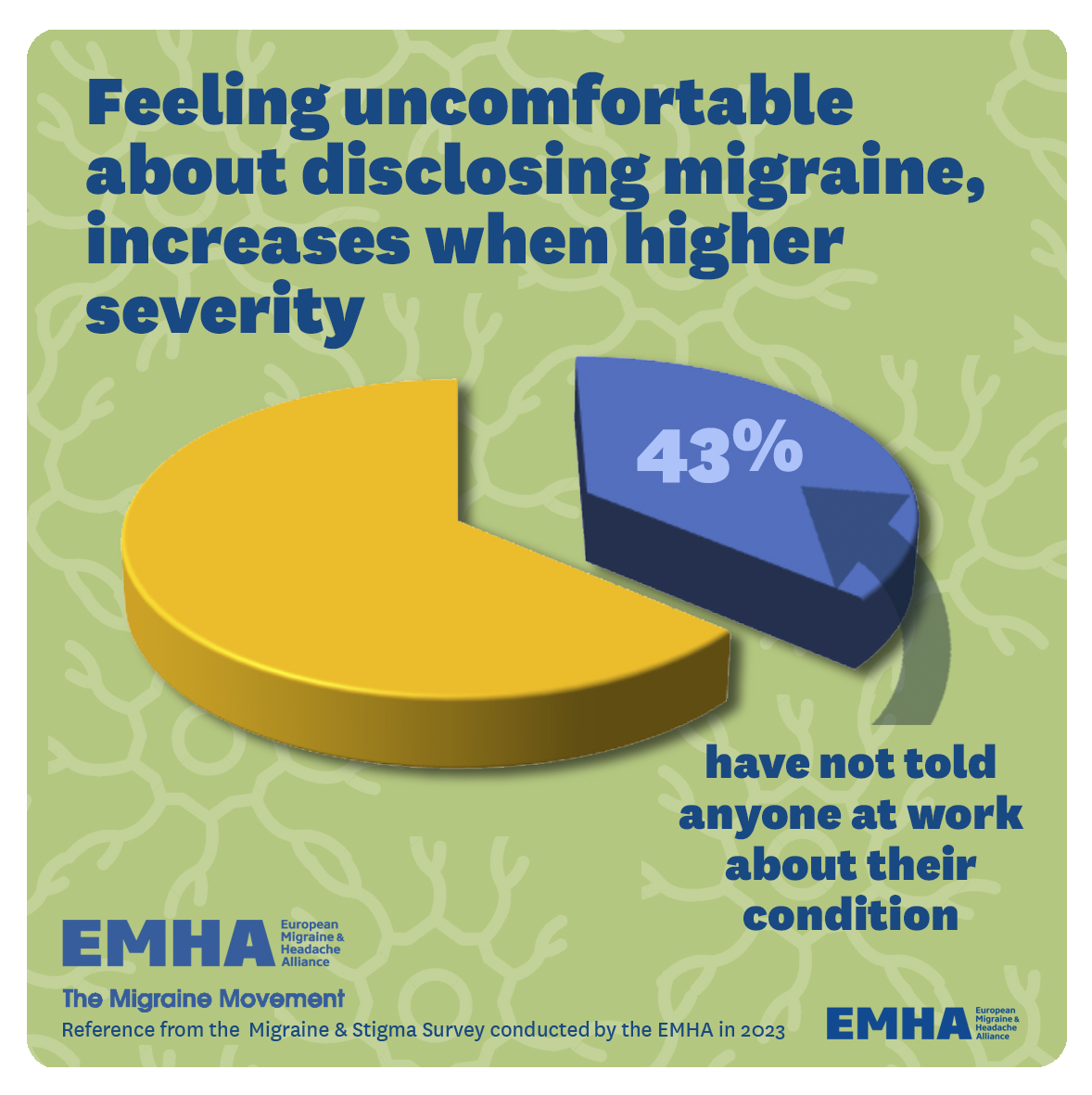
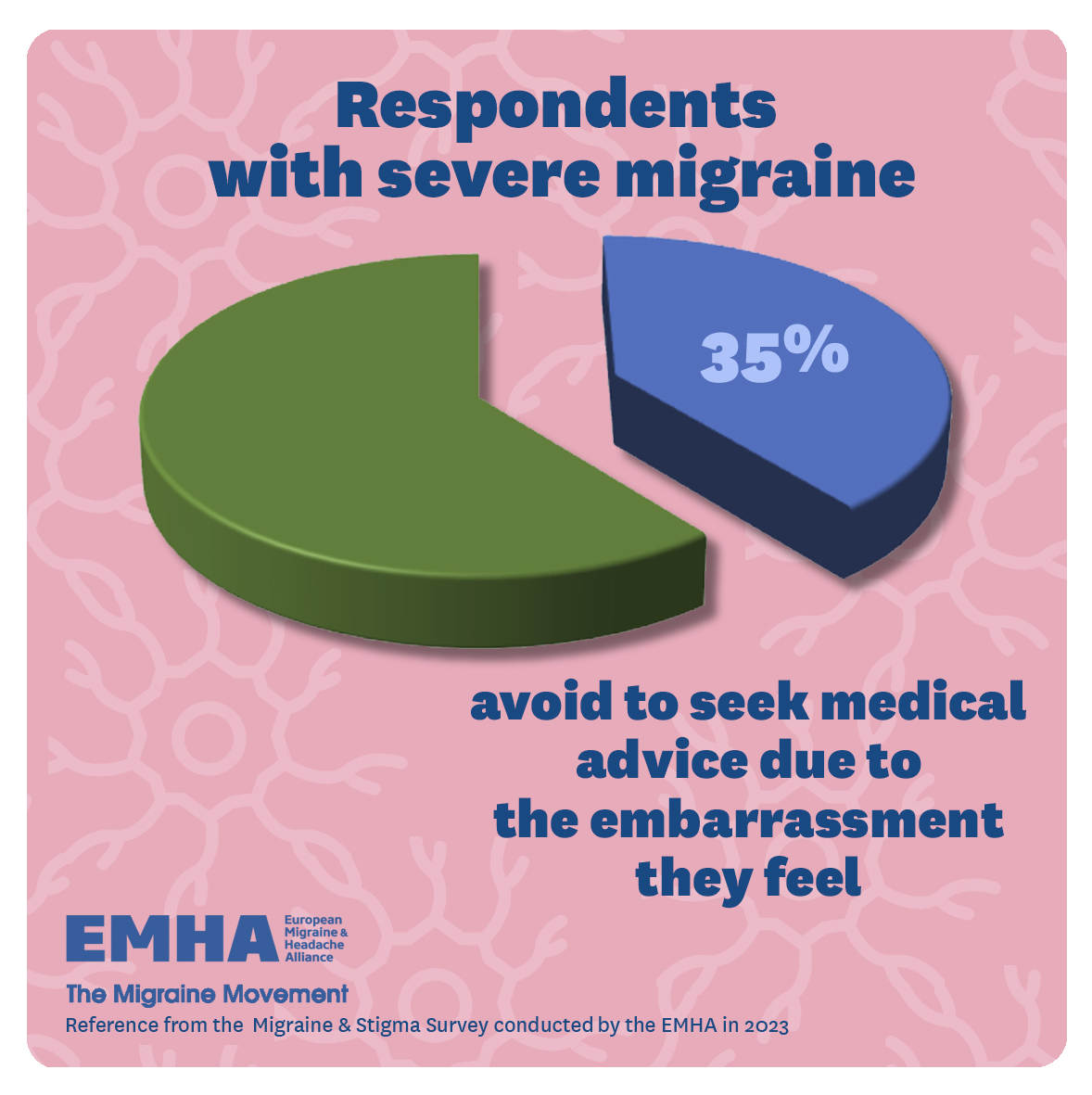
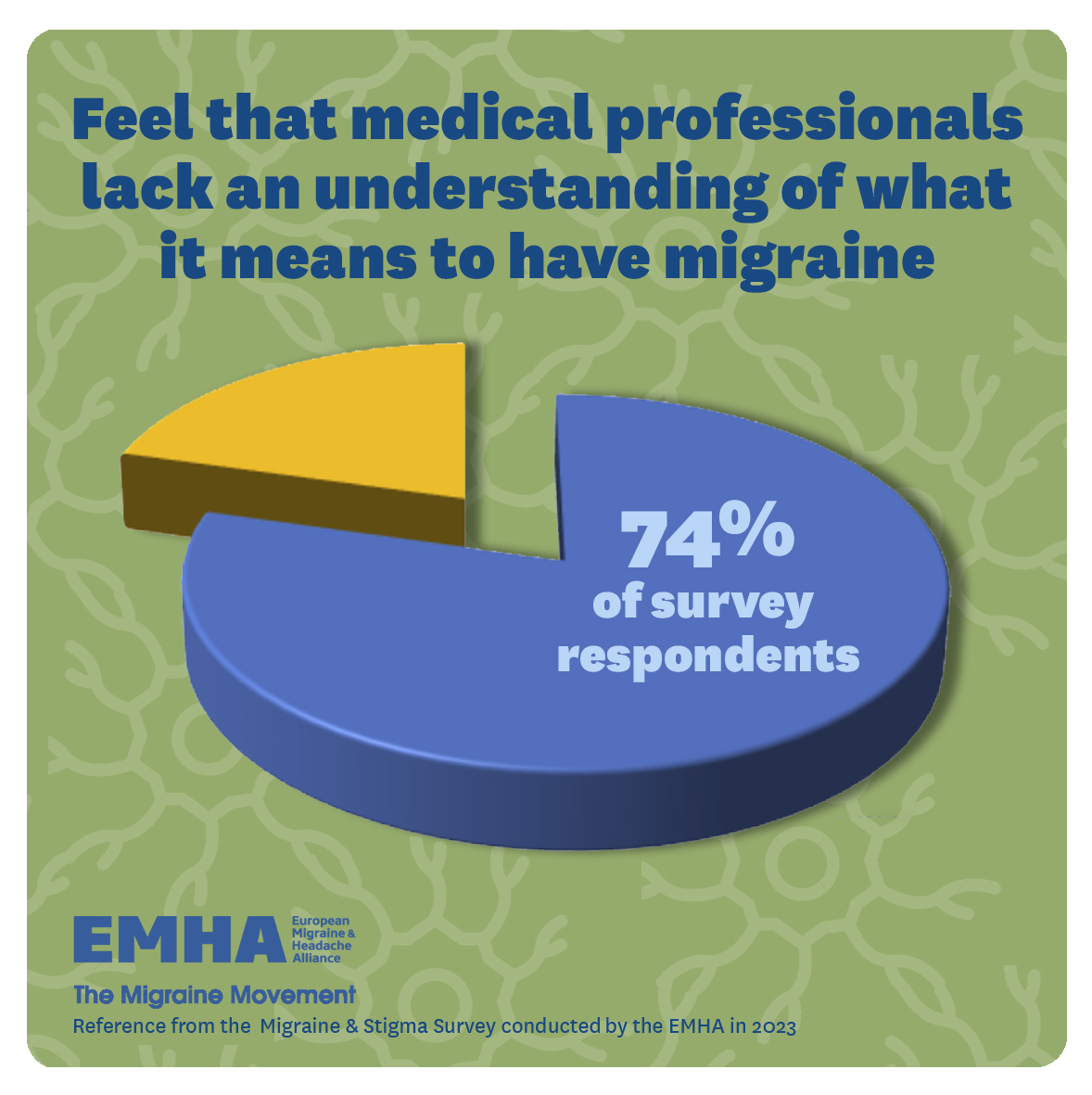
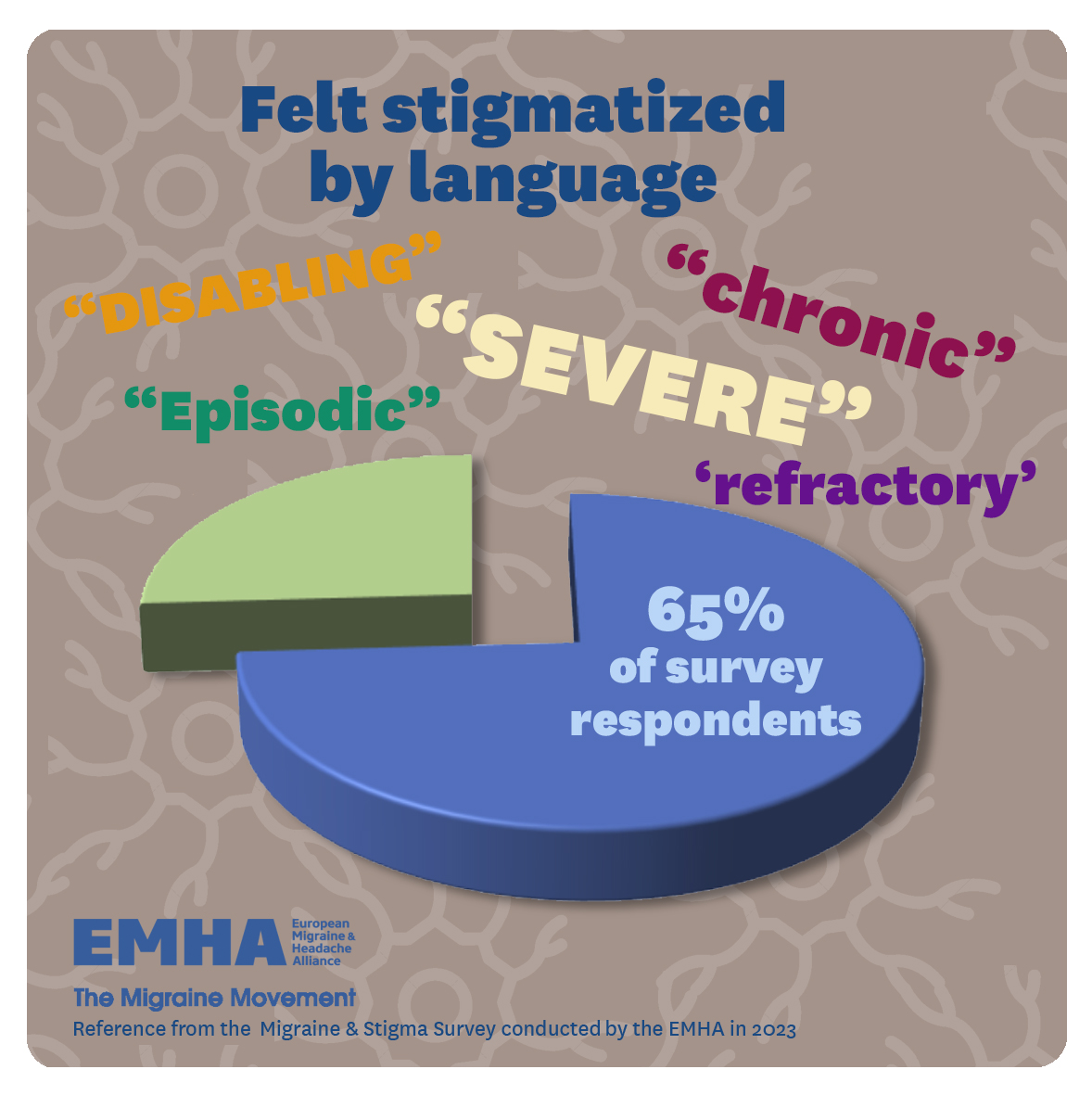
European Headache Congress 2023- EMHA’s presentation
We are grateful to have the support of the pharmaceutical and biotech industries.


